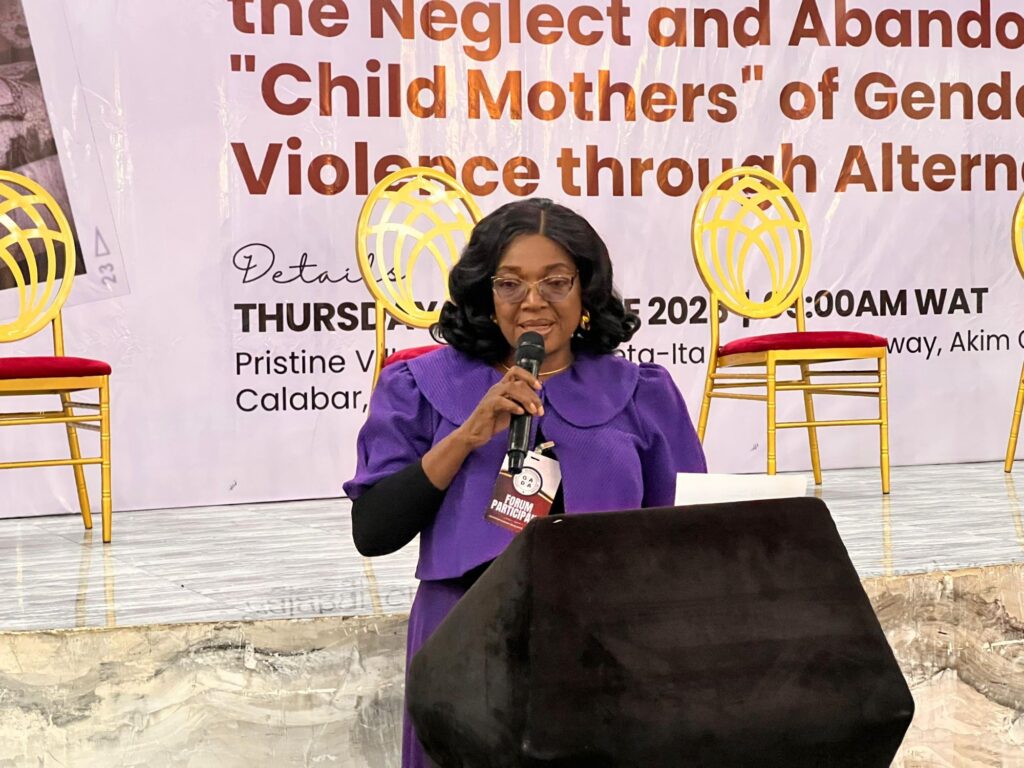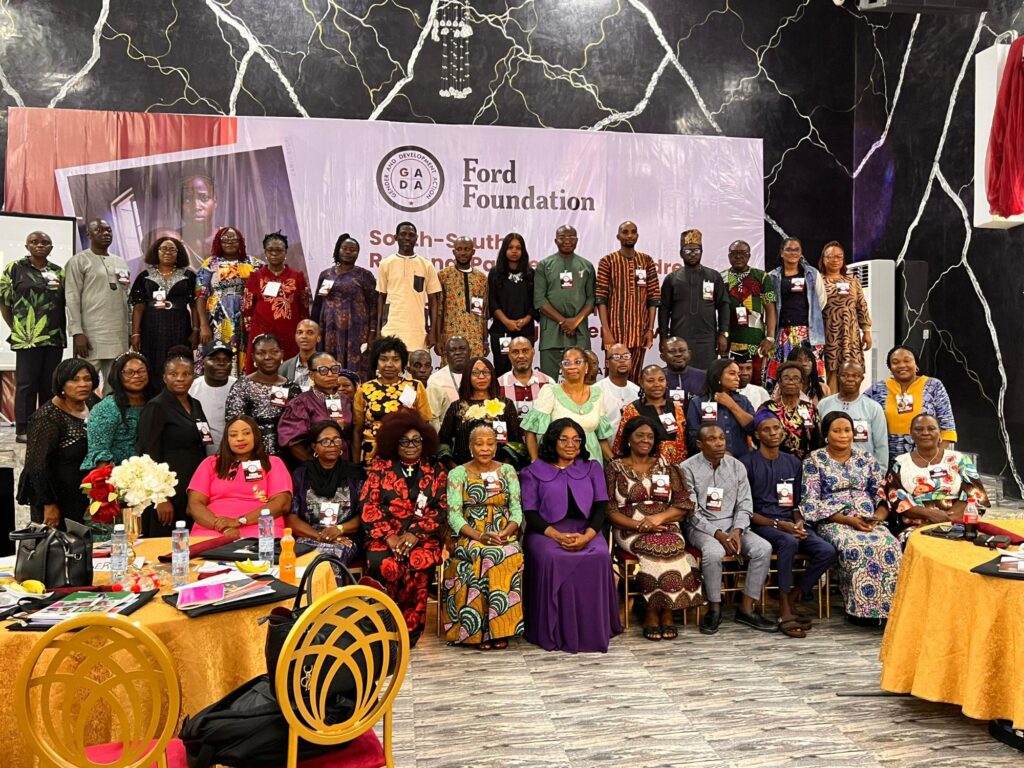By Lawrence Mpama


Abandoned child mothers are the most invisible and vulnerable sufferers in our society today, and have become easy soft targets for hardened criminals and the unconscionable evil men, who lurks around them to take advantage of their condition.
Therefore, the Wife of the Cross River State Governor, Bishop (Mrs) Eyoanwan Bassey Otu, Gender and Development Action (GADA), and other stakeholders have called for an end to the silent suffering of these most invisible victims — child mothers — urging governments and communities to adopt alternative care systems that can offer these girls and their children a second chance at life.
First Lady made the passionate appeal to participants at the South-South Regional Forum on the Application of Alternative Care Guidelines, held in Calabar from June 25 to 26, 2025. The event was convened by Gender and Development Action (GADA) with support from the Ford Foundation.
“Child mothers are one of the most vulnerable and invisible populations in our society,” Bishop Otu, represented by her Special Adviser on Administration, Dr. Oko said. “Many of them are neglected post-pregnancy as a form of cultural punishment, which in itself constitutes gender-based violence.”
She lamented the prevalent societal attitudes that condemn young mothers without considering whether they were victims. “We are quick to label them bad children. But where is the accountability for the men involved? This selective justice is institutionalized violence,” she stated.
“Our daughters are still children,” Dr. Oko declared. “But life has handed them the burden of raising other children. We owe them dignity. We owe them care. And we owe them justice.”
The two-day forum brought together key stakeholders to spotlight the lives of girls, some as young as 13, who are forced into motherhood through rape, coercion, or poverty, and are then left to raise their children without emotional, legal, or institutional support.
In her remarks, Ambassador Nkoyo Toyo, Founder of GADA, noted, “These girls are children raising children, and most are themselves products of generational abuse. Without structured care, empowerment, and protection, they are trapped in cycles of poverty, trauma, and exploitation.”
She warned about the rise of baby factories and predatory networks that harvest vulnerable pregnancies under the guise of support. “When society fails to care, traffickers step in,” Toyo added.
Tolu Odugbeson, who represented the Director-General of NAPTIP, described the issue as a national emergency. Quoting data from the 2021 Multiple Indicator Cluster Survey, he revealed that 29% of Nigerian women aged 20–24 gave birth before age 18.
“These girls are are survivors of sexual abuse and institutional neglect. We must urgently scale up multi-agency responses, implement protective legislation, and prioritize the welfare of child mothers,” she said.
Odugbeson applauded South-South states for domesticating the Violence Against Persons (Prohibition) Act (VAPA) and called for deeper collaboration between state actors and civil society.
Goodwill messages at the summit came from high-level representatives of relevant ministries and agencies. These included the Commissioners for Women Affairs, Social Welfare and Children across South-South states, who pledged their commitment to policy advocacy and improved shelter systems.
Also delivering solidarity remarks were representatives of the United Nations Population Fund (UNFPA), United Nations Children’s Fund (UNICEF), the National Human Rights Commission, and the Child Protection Network (CPN). They emphasized the need for increased government funding, legal enforcement, and community-based referral systems to safeguard at-risk girls and break the intergenerational cycle of abuse.
Philomena Modor, head of the Gender Unit at the Cross River Police Command, expressed concern over the lack of facilities to accommodate young mothers with babies in distress cases.
“Often, we are forced to keep them at police stations because there’s nowhere else to take them,” she explained. “Cross River must follow the example of other states, where temporary shelters for mother-child cases exist within the police structure.”
The summit concluded with a strong consensus: the protection and rehabilitation of abandoned child mothers cannot be left to chance. It requires collaboration, compassion, and concrete systems.



